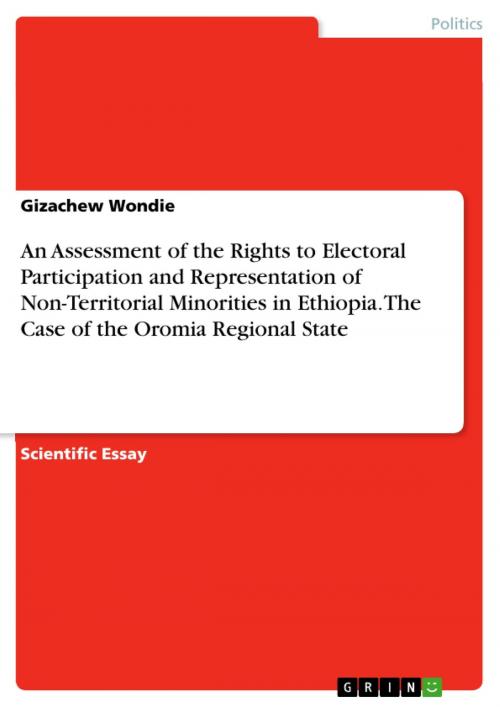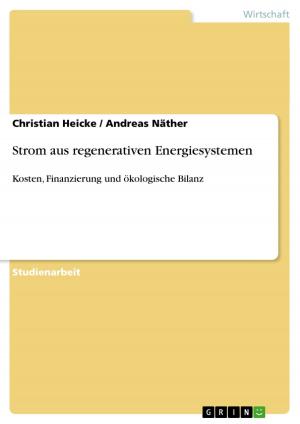An Assessment of the Rights to Electoral Participation and Representation of Non-Territorial Minorities in Ethiopia. The Case of the Oromia Regional State
Nonfiction, Social & Cultural Studies, Political Science, International, International Relations| Author: | Gizachew Wondie | ISBN: | 9783668359277 |
| Publisher: | GRIN Verlag | Publication: | December 8, 2016 |
| Imprint: | GRIN Verlag | Language: | English |
| Author: | Gizachew Wondie |
| ISBN: | 9783668359277 |
| Publisher: | GRIN Verlag |
| Publication: | December 8, 2016 |
| Imprint: | GRIN Verlag |
| Language: | English |
Scientific Essay from the year 2015 in the subject Politics - International Politics - Region: Africa, grade: A, , language: English, abstract: Ethiopia is designed as an ethnicity-based federal state structure in order to respond to the challenges of minorities by developing a counter-majority institutional system. However, the ethnic-based federal state structure also creates forms of local tyranny which will further complicate the challenges of minority rights at the local constituent units of the federation. More importantly, the ethno-territorial organization of the federal units of Ethiopia left a number of non-native peoples of the country out of the constitutional recognition under the regional constitutions. As one of the regional states of Ethiopia, Oromia Regional State, the largest in size and number of residents, is the major regional state in which large numbers of non-territorial minorities are found. The allocation of home land for each major ethnic group in the country complicated the right of these dispersed non-territorial minorities in the regional state. Minding this, this paper attempts to assess the rights to electoral participation and representation of non-territorial minorities in Oromia Regional State/Ethiopia. In doing so, secondary documents like journal articles, books, magazines and reports were used. Data was also collected from different media and newspapers to get the full picture of the issue under study. Accordingly, the paper generalizes that the Oromo use of regional autonomy for complete identification of their ethnic group and the non-territorial minorities clearly lacks legal and institutional protection in the regional states.
Scientific Essay from the year 2015 in the subject Politics - International Politics - Region: Africa, grade: A, , language: English, abstract: Ethiopia is designed as an ethnicity-based federal state structure in order to respond to the challenges of minorities by developing a counter-majority institutional system. However, the ethnic-based federal state structure also creates forms of local tyranny which will further complicate the challenges of minority rights at the local constituent units of the federation. More importantly, the ethno-territorial organization of the federal units of Ethiopia left a number of non-native peoples of the country out of the constitutional recognition under the regional constitutions. As one of the regional states of Ethiopia, Oromia Regional State, the largest in size and number of residents, is the major regional state in which large numbers of non-territorial minorities are found. The allocation of home land for each major ethnic group in the country complicated the right of these dispersed non-territorial minorities in the regional state. Minding this, this paper attempts to assess the rights to electoral participation and representation of non-territorial minorities in Oromia Regional State/Ethiopia. In doing so, secondary documents like journal articles, books, magazines and reports were used. Data was also collected from different media and newspapers to get the full picture of the issue under study. Accordingly, the paper generalizes that the Oromo use of regional autonomy for complete identification of their ethnic group and the non-territorial minorities clearly lacks legal and institutional protection in the regional states.















